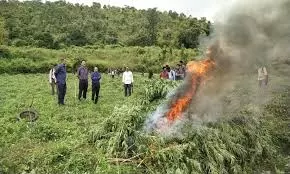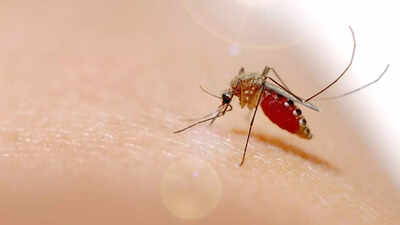Americans planning a trip to China are being urged to stay alert. The U.S. Centers for Disease Control and Prevention (CDC) has issued a Level 2 travel alert following a major outbreak of the chikungunya virus.The warning comes after over 7,000 cases were reported in Guangdong province, according to the BBC. In Foshan, one of the hardest-hit cities, patients are being hospitalized until they test negative. Hospitals are using mosquito nets on beds, something not seen since the early COVID-19 days.
How the virus spreads
Chikungunya is a mosquito-borne virus. It spreads through the bite of an infected female mosquito—usually Aedes aegypti or Aedes albopictus. These mosquitoes also transmit dengue and Zika. They bite mostly during daylight and lay eggs in still water, like puddles, buckets, or plant pots.

When a mosquito bites someone infected with chikungunya, it picks up the virus. Over the next few days, the virus multiplies inside the mosquito. Once it reaches the mosquito’s saliva, it can pass on the virus to the next person it bites. That person can then pass it on to more mosquitoes, creating a cycle.
Symptoms to watch for
As per the World Health Organization, Symptoms usually appear 4–8 days after the bite (but can show up as early as 2 days or as late as 12). The illness often begins suddenly. Key signs include:High feverIntense joint pain (often severe and long-lasting)Swollen jointsMuscle painHeadacheNauseaFatigueRash

Symptoms can be confused with other viruses like dengue and Zika. Without the telltale joint pain, mild cases may go unnoticed.Patients mostly recover fully from the infection; however, occasional cases of eye, heart, and neurological complications have been reported with CHIKV infections.
Who is at risk?
Those at highest risk for severe chikungunya infection include people at the extremes of age. Newborns are particularly vulnerable, especially if they are infected during delivery from a mother who has the virus, or if they are bitten by an infected mosquito within the first few weeks of life. Older adults, particularly those with underlying medical conditions such as heart disease, diabetes, or weak immunity, are also more likely to experience complications.
How to protect yourself?

If you are travelling to China or places nearby, it is advised to follow some precautions to protect yourselfApply EPA-registered insect repellents containing DEET, picaridin, or oil of lemon eucalyptus to exposed skin to prevent bites.Covering your skin reduces the chances of mosquitoes landing on and biting you.Mosquitoes breed in stagnant water, so steer clear of places with puddles, open containers, or clogged drains.Aedes mosquitoes that spread chikungunya bite mostly during the day, so limit outdoor activity during daylight hours.Proper ventilation and screened windows keep mosquitoes out and help create a safe, bite-free environment indoors.


























































